Top 5 Substitutes for Sprouts
I am incredibly fond of sprouts. I'm constantly throwing them on top of salads, curries, even nachos and burritos when I'm feeling particularly into something with a little flare for fusion. But they have a reputation for being finicky and difficult to find. This isn't without good reason, though. That's why there are a plethora of substitutes for sprouts.
Sprouts & the Risk of Foodborne Illness
Sprouts need warm and moist environments to grow in. The problem is that foodborne illnesses, like Salmonella and E. coli also thrive in these environments. As a consequence, sprouts have a heightened risk of being involved in outbreaks.
A lot of the time we like to think of foodborne illnesses as being linked to improperly cooked meat. And, while this is true, meat isn't necessarily the worst culprit.
The CDC estimates that 1 in 6 people in the United States will get sick from foodborne illness each year. Of the 48 million people who contract foodborne illnesses, 128,000 are hospitalized, and 3,000 die each year (CDC, Burden of Foodborne Illness: Findings). There are 31 known foodborne pathogens, including bacteria, viruses, and parasites that the CDC tracks cases for. Produce account for the most illnesses at 46%. Meat and poultry account for the second highest number of illnesses at 22%. Dairy and eggs rank third with 20%. And fish and shellfish come in last with 6.1% (CDC, Attribution of Foodborne Illness).
Most recipe can be made with or without the sprouts. I'm a big fan of sprouts. Although a lot of people aren't quite so fond of them. They can be difficult to find because of the heightened risk of foodborne illness. Sprouts need warm and damp growing conditions, which is also a prime growing environment for things like Salmonella and E. coli. I've personally never had a problem with this. But it is something to consider if you have kids or are immunocompromised. There are a plethora of good substitutes for sprouts.
Rinsing Sprouts Does Not Remove All Bacteria
NOTE: Rinsing sprouts will not remove bacteria. Home-grown sprouts also can make you sick if you eat them raw or lightly cooked.
Children, older adults, pregnant women, and people with weakened immune systems should avoid eating raw sprouts of any kind (including alfalfa, clover, radish, and mung bean sprouts). People with weakened immune systems include people undergoing cancer treatment, people with HIV/AIDS, people with diabetes, and other groups.
From 1996 to July 2016, there were 46 reported outbreaks of foodborne illness in the United States linked to sprouts. These outbreaks accounted for 2,474 illnesses, 187 hospitalizations, and three deaths (USDA, FDA Concludes Major Sampling Study of Sprouts).
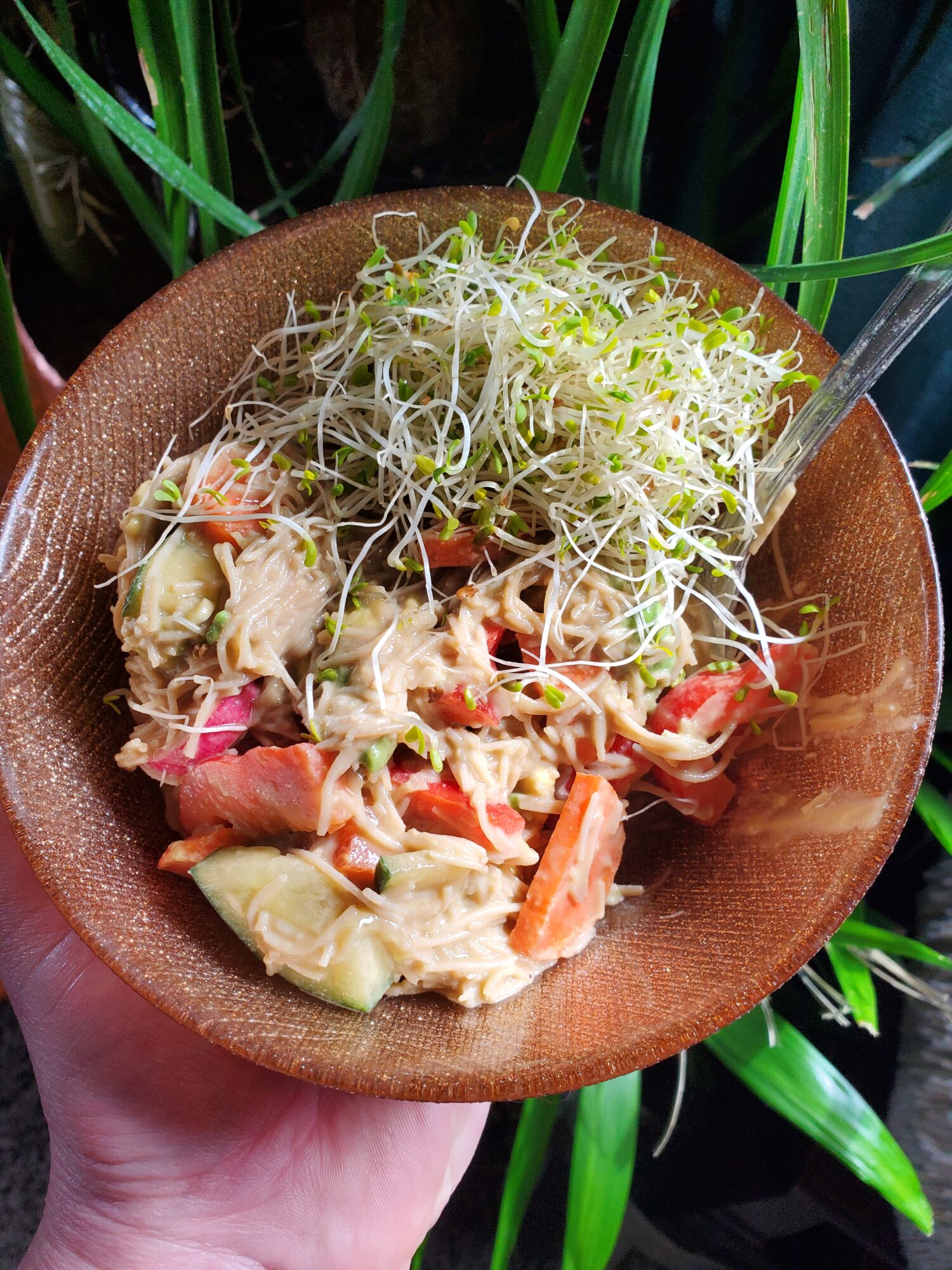
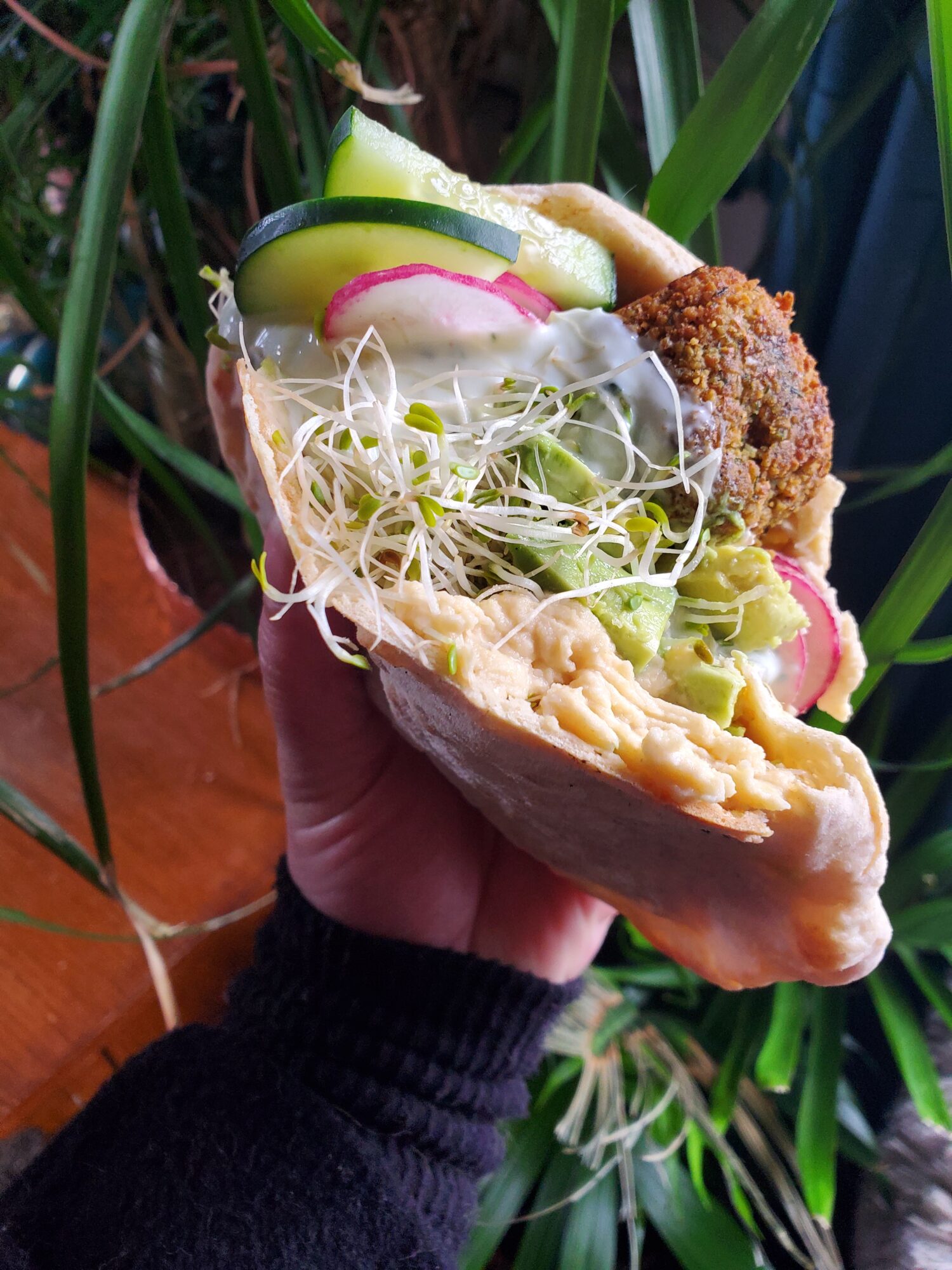
Do I Eat Sprouts?
I'm personally not of an age group or immunocompromised in a way that I'm all that worried about the risk from sprouts. A lot of foodborne illnesses cannot be washed off and must be cooked. This means that there's a similar risk of foodborne illness from uncooked vegetables in general. This isn't the same risk because of the warm and moist growing environment for sprouts. Although 46% of foodborne illness comes from produce (Center for Disease Control and Prevention, Estimates of Foodborne Illness in the United States: Attribution of Foodborne Illness, 1998-2008 - Images). This means that all uncooked fruits and vegetables also come with a risk and it is recommended for certain age groups and immunocompromised people to consume more cooked foods to decrease this risk.
I've personally never had an issue with foodborne illness. Although it is quite common in the United States with an estimated 1 in 6 people or 48 million Americans being infected every year (CDC, Attribution of Foodborne Illness). With sprouts specifically, there have been 46 reported outbreaks in the United States from 1996-2016, which have accounted for 2,474 illnesses, 187 hospitalizations, and three deaths (USDA, FDA Concludes Major Sampling Study of Sprouts).
If I ever have an outbreak, I might change my mind on this stance. I've certainly known people who won't eat uncooked sprouts for this reason. Personally, I do still eat sprouts. Eating almost any food carries inherent risks. I'm slightly more concerned about cancer-causing agents in food coloring and pesticides than I am about sprouts. But it is a concern for a lot of people and I absolutely would not recommend everyone consume sprouts for this reason.
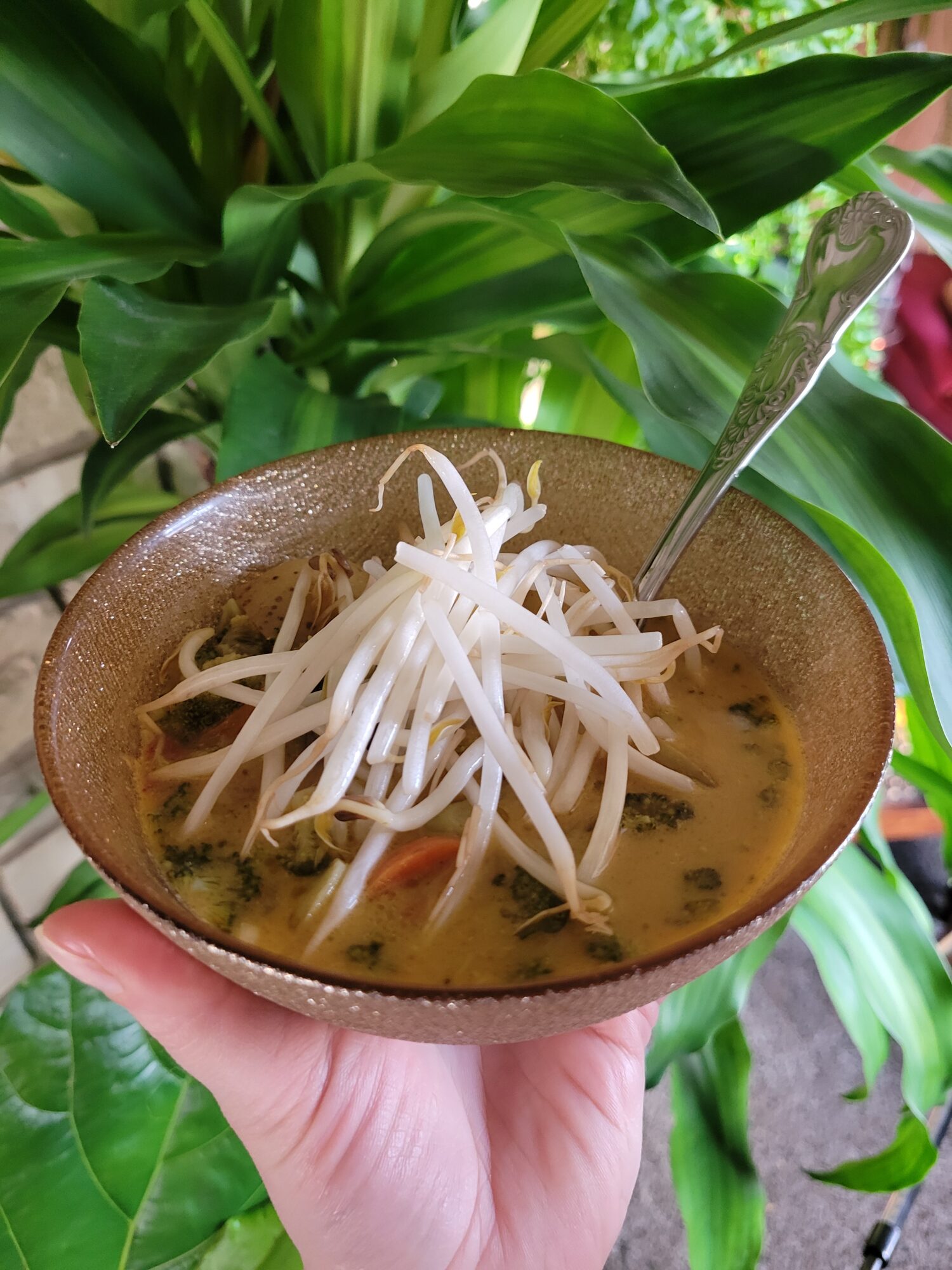
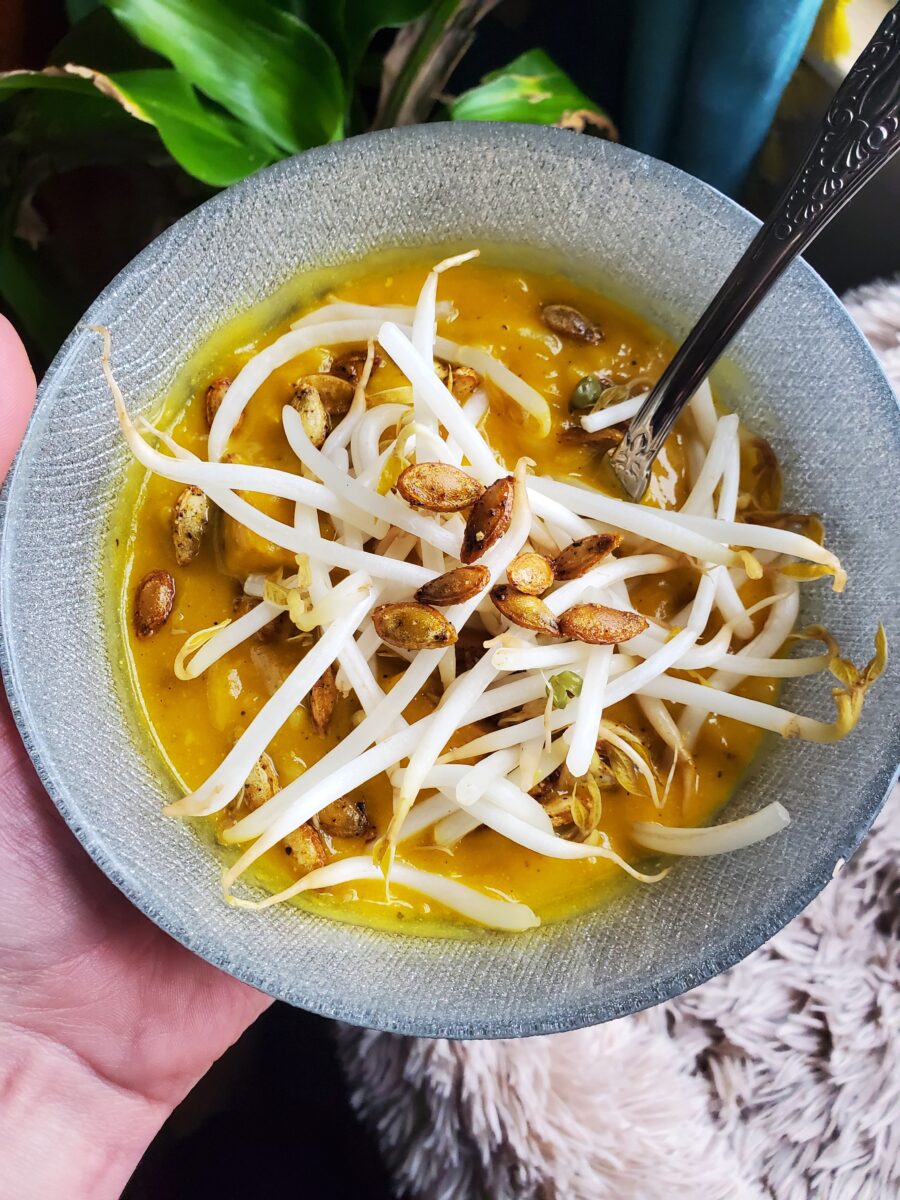
Are There Substitutes for Sprouts?
If you cannot find sprouts or are looking for an alternative, there are plenty of them! I only have one local grocery store that routinely carries sprouts and, since they are further out than I like to drive, I maybe only get them two or three times a year. Fortunately, there are plenty of substitutes for sprouts out there.
I'm always disappointed when an articles says to substitute sprouts with different types of sprouts... As if it's the type of sprout that's the problem. Sprouts have a very similar growing environment and risk of foodborne illness, regardless of what type of sprout. There are slight differences between them, but not enough that I'd recommend one variety of sprouts over another! If your local grocer doesn't sell alfalfa sprouts, it's also likely that they don't sell broccoli sprouts, either. So, this is kind of a non-suggestion and I will not be making it here.
Do You Need Any Specialty Tools?
My most common substitutes for sprouts are julienned or shredded produce to imitate the texture and taste of sprouts. One of the things that I like about sprouts is that they have bright, slightly citrusy taste, with a little bit of crunch. Julienning is the process of finely cutting fruits and vegetables into this strips. There are various handheld tools, mandolines, and other slicers that achieve this effect.
If you don't have or don't want to use one of these, the produce can be thinly sliced by hand or even put through a cheese grater or microplane. Unless you have very precise knife skills, the handcut version is going to be a little bit thicker and have more of a crunch to it. Whereas the grated fruits and vegetables are going to be finer with an airier quality to them.
This is all a matter of personal preference. I tend to do both depending on what I'm making. I have owned and probably still do have specialty julienning tools. Although I could not tell you where they are and obviously don't use them. There's nothing wrong with them. A lot of people really enjoy them. I just have so many other kitchen contraptions that I personally don't keep space for them. Every now and then I think about getting a nice spiralizer. Maybe one day! I shall add it to the list of things to figure out how to shove into my 50 square foot kitchen.
On to the substitutes for sprouts!
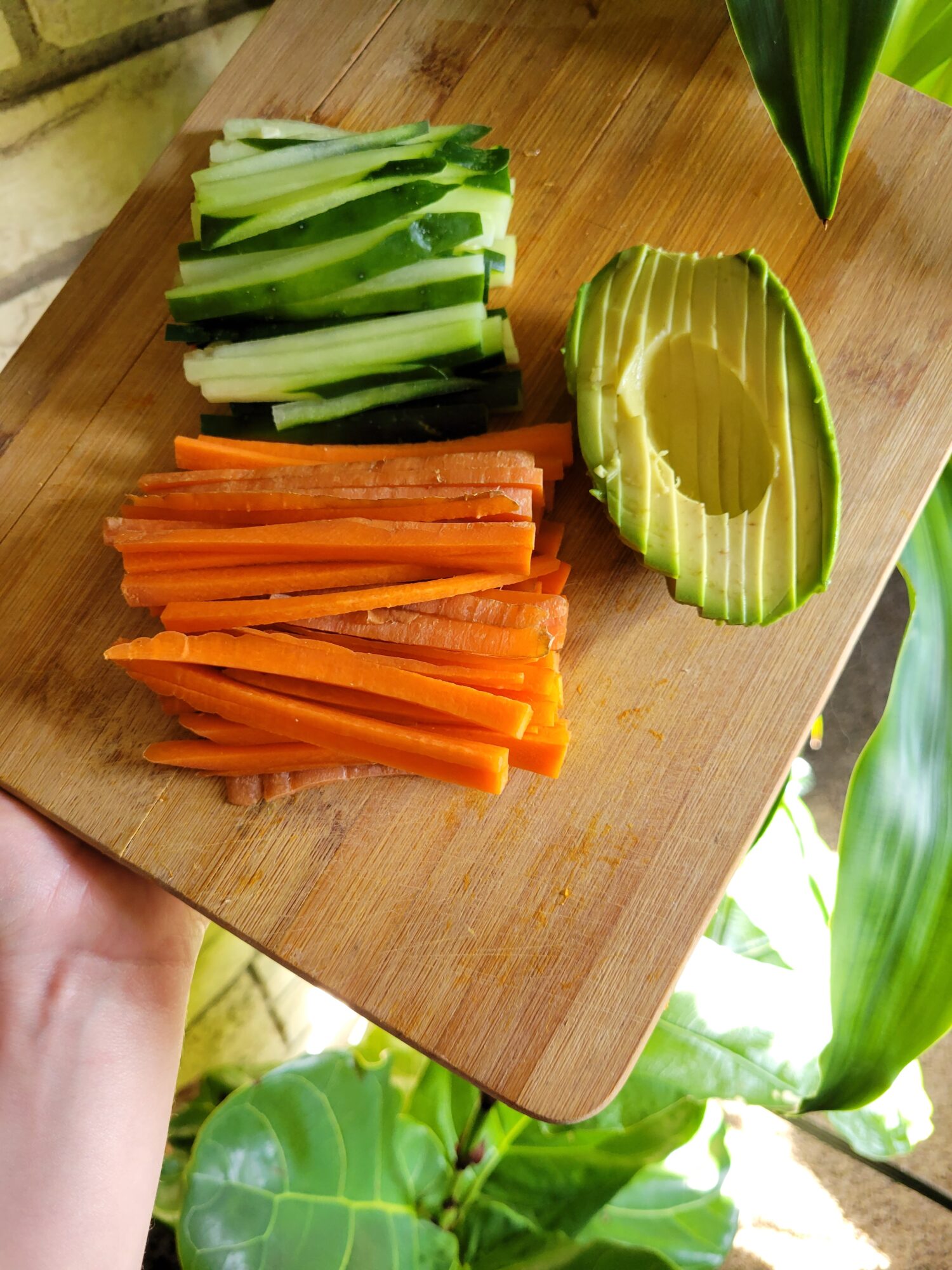
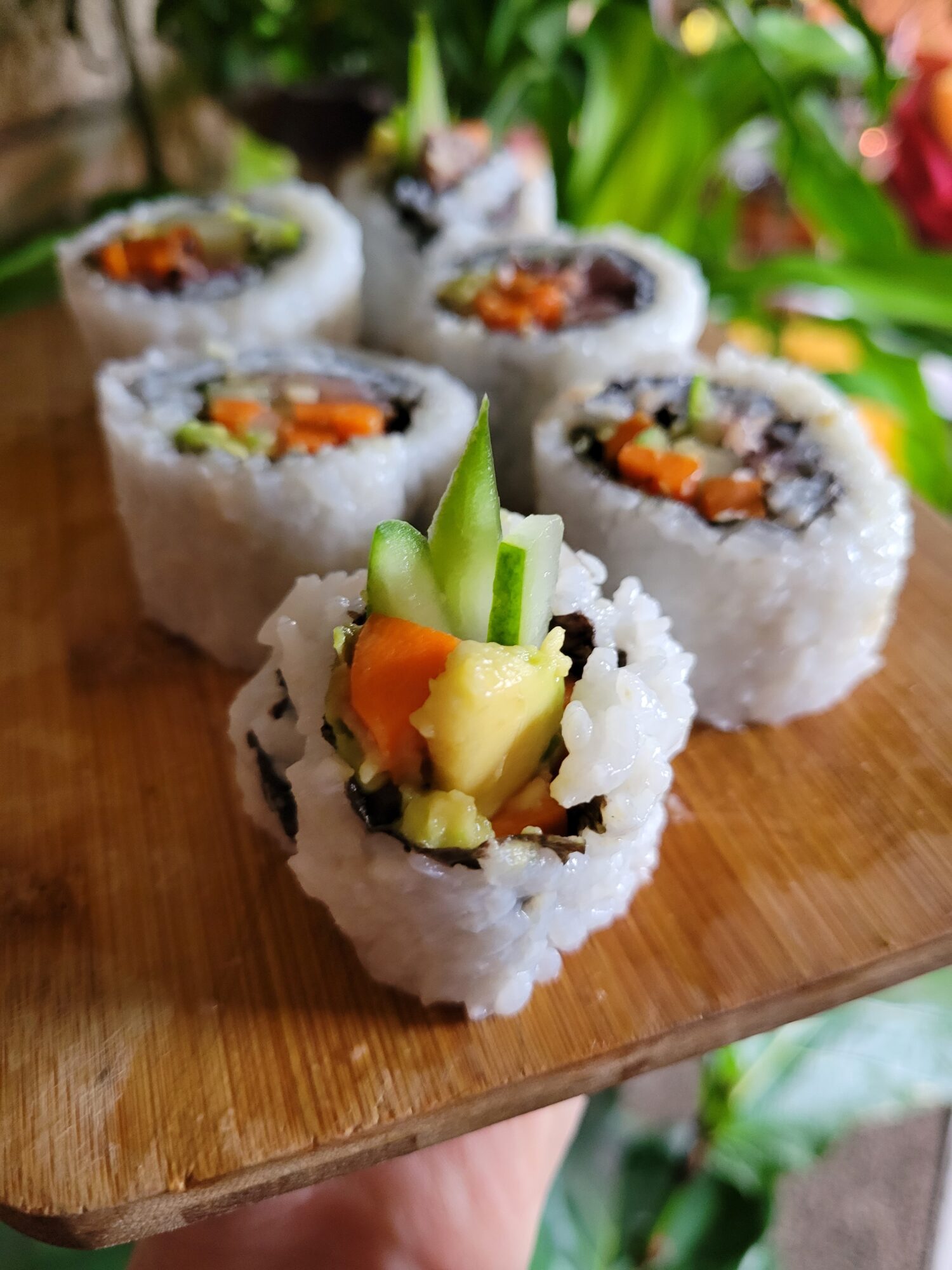
1. Carrots
Carrots are probably my favorite go-to for substitutes for sprouts. They have a similar crunch to them and add a fun pop of color. I also just generally like carrots. They tend to be an underutilized vegetable. Carrots have a natural sweetness to them that is bright and almost citrusy in flavor. I'm constantly putting them in everything from fresh salads, pasta salads, soups, stews, curries, burritos, and even lasagnas.
If carrots aren't entirely your cup of tea, parsnips, jicama, and daikon are all in a very similar realm.


2. Radish
Radish is my second go-to for sprout substitutions. I don't know what it is about radish that get such a reputation for being bland. I suspect that it might be their resemblance to turnips and being a tasteless, but efficient food? Personally, I'm incredibly fond of radish! If I grow nothing else in the garden, I'm planting hot peppers, tomatoes, and radish. They're one of my favorite summer vegetables with a bright, slightly bitter and citrusy flavor to them. Radish are great raw in salads. Red turnips also give a nice pop of color. Otherwise, white turnips do look quite similar to sprouts when thinly sliced or julienned.
If you do want to go for something a little bit larger with a similar feel, turnips are also a great option. If you're very fond of onions, very thinly sliced onions also have a similar effect (think onions chopped up on top of guacamole).
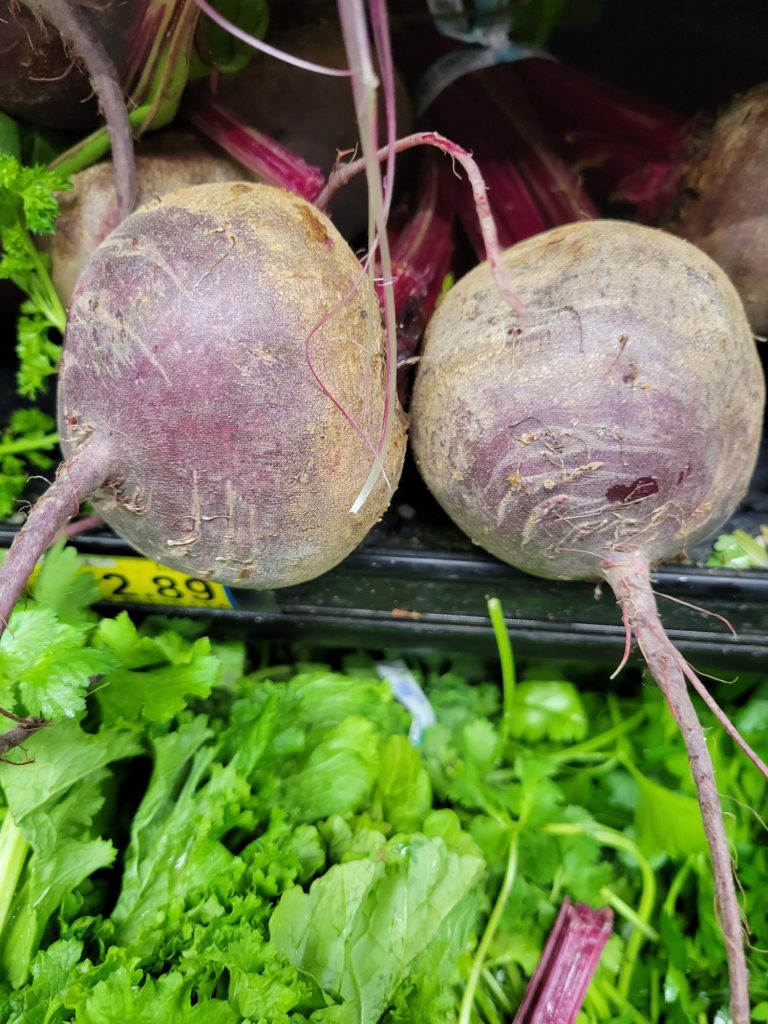
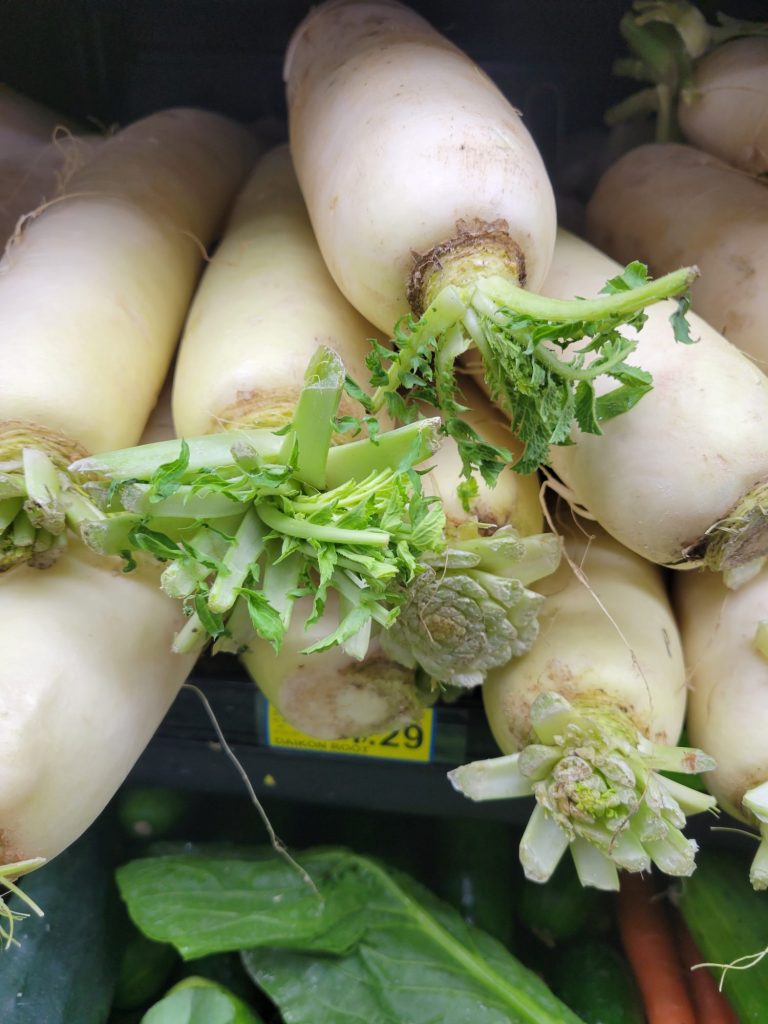
3. Beets
Beets are very similar to carrots in that they work in a variety of both raw and cooked dishes. The red varieties also have a very fun pop of color. Whereas the yellow-hued beets have a nice, warm color to them without dying all of your cutting boards an intense hue. I'm also incredibly fond of chioggia beets with a red and white candy stripe to them. Beets tend to be on the denser side, though. When eating them raw, I recommend shredded through a cheese grater. Although they can be julienned or finely sliced and are great in things like sushi rolls, instead of cucumber.
For a similar texture without the earthiness of beets, daikon also do really well as a substitute.
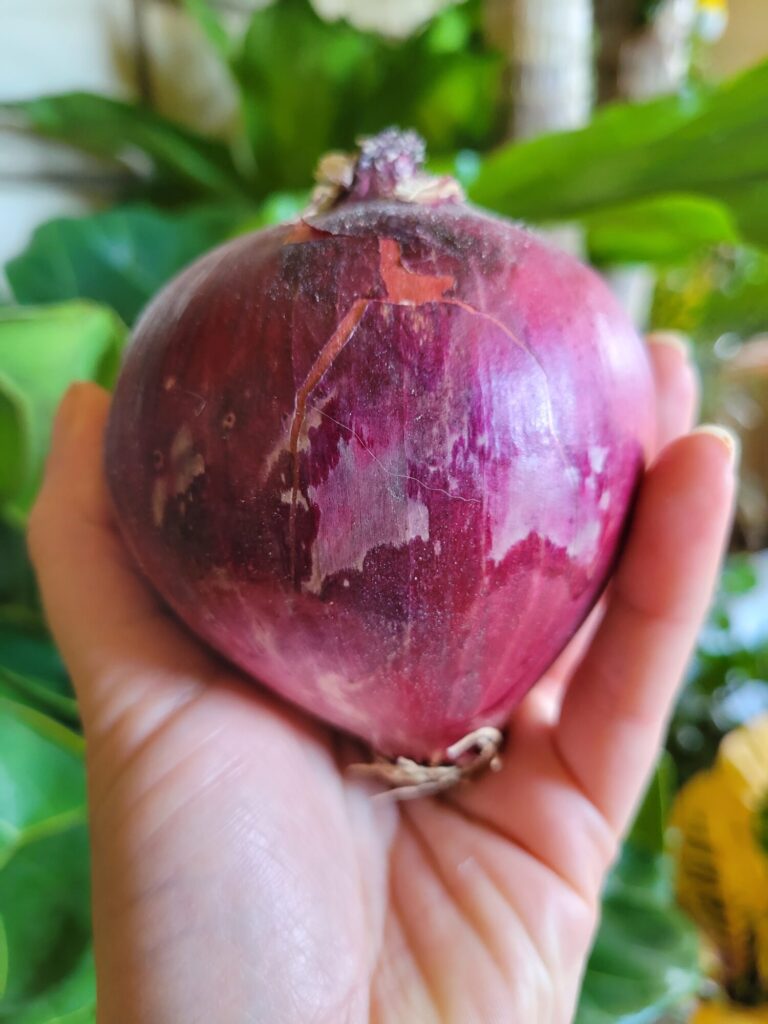
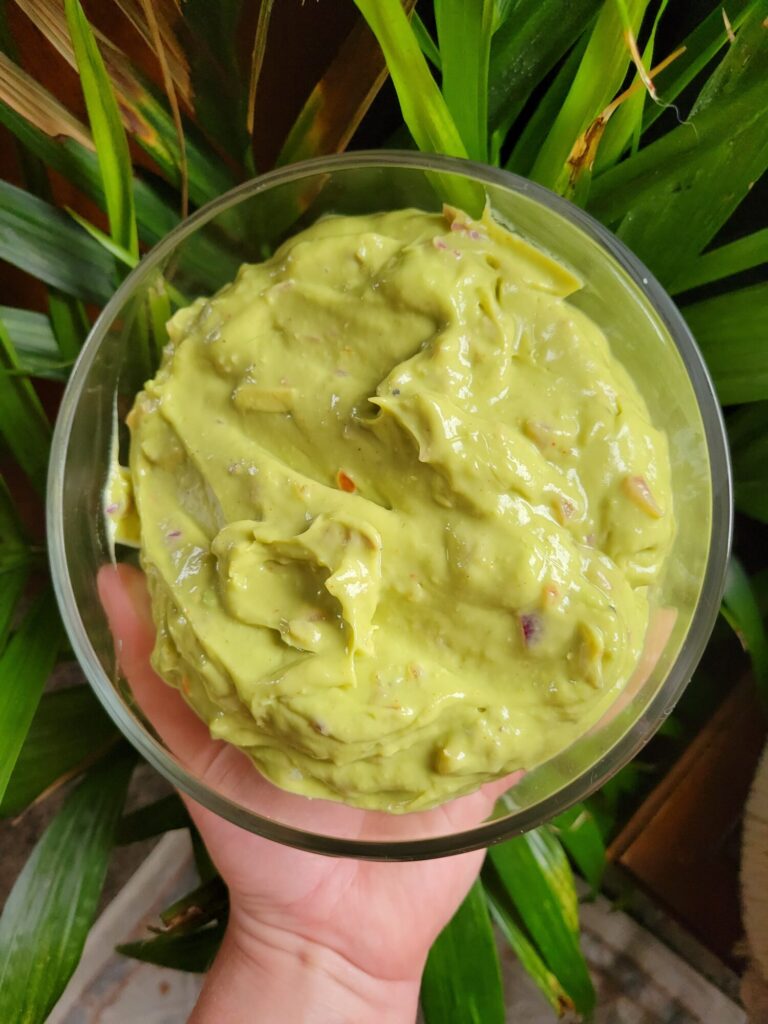
4. Cabbage
Thinly sliced cabbage is very similar in appearance to sprouts. It's firmer than lettuce and keeps its shape better than sprouts do. It's a great substitute and I would highly recommend it if you're a fan of cabbage. And it's commonly available either in green or purple form for a bright pop of color. Personally, it's not my favorite. It has a bitter and almost peppery flavor to it and I'm just not the biggest fan. Possibly because I'm not really fond of coleslaw and it's ruined the vegetable for me. But it does make a good sprout substitute.
Celery, zucchini, and even pickles also make a good substitutes here if cabbage isn't your forte.
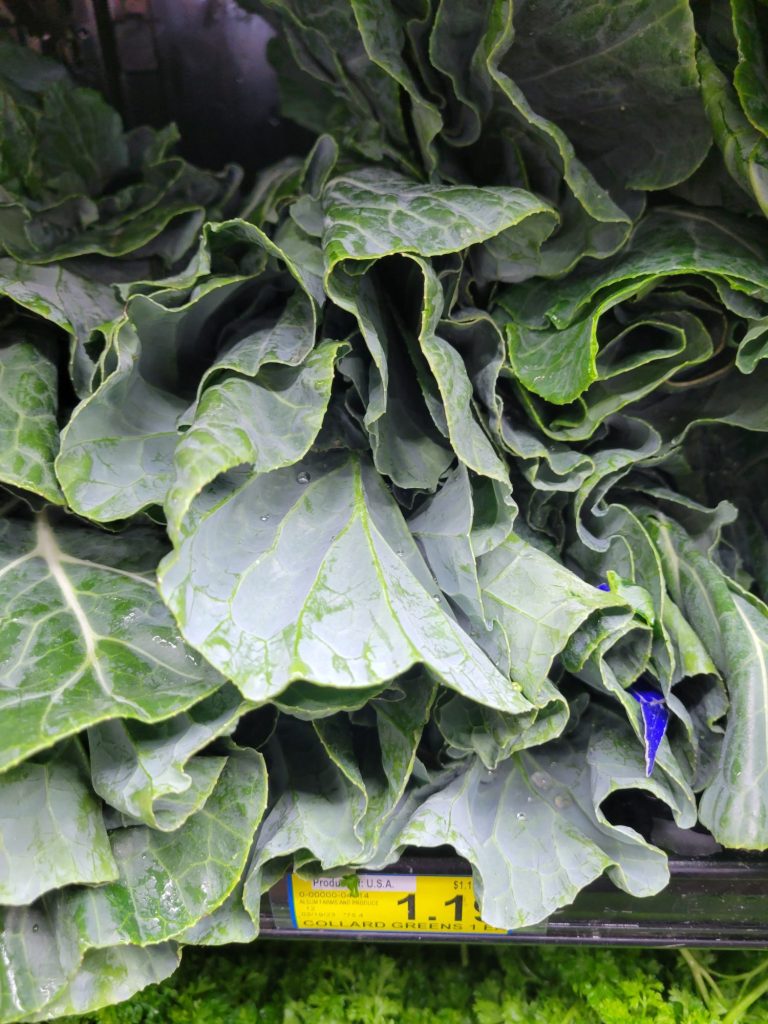
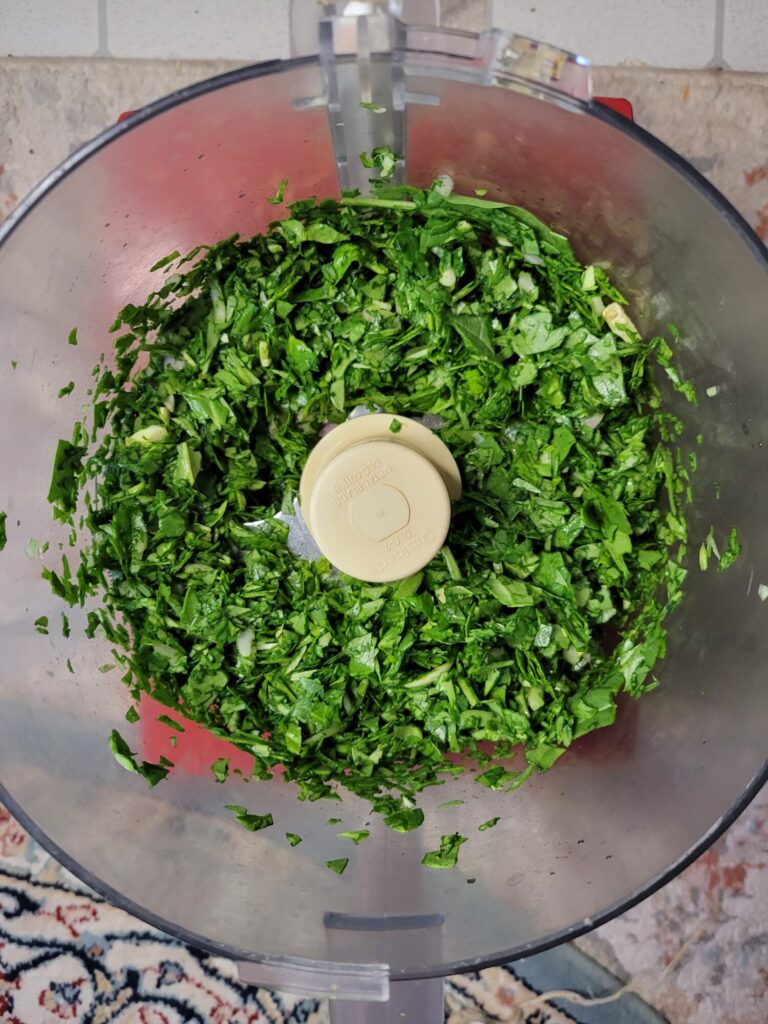
5. Bok Choy
Bok Choy is another great recommendation for a sprout substitution. It's in a lot of similar dishes that I would put sprouts on and has a similar slightly bitter, but bright and floral flavor to it. Bok choy tends to be cooked and wilted. So, I'd recommend buying it in season when it's at the peak of crispness and very finely chopping it. Bok choy is also very good cooked into a warmer dish as well as garnished fresh on top.
Really, any thinly sliced leafy green will substitute here. You can similarly slice up iceberg, romaine, spinach, collard greens, or any lettuce of choice. Certain garnishes, like green onions, also work very similarly to bok choy.
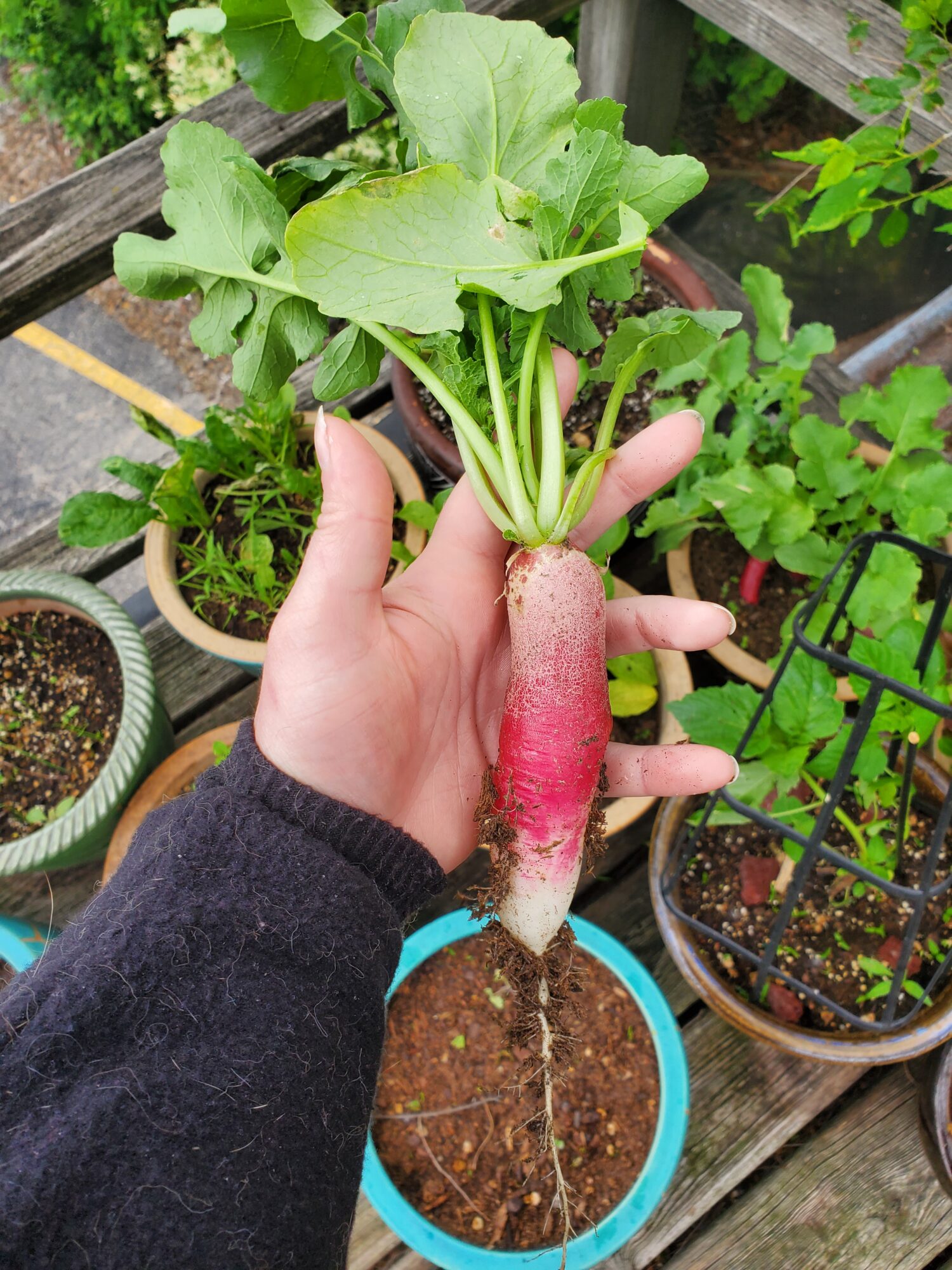
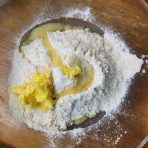
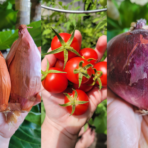
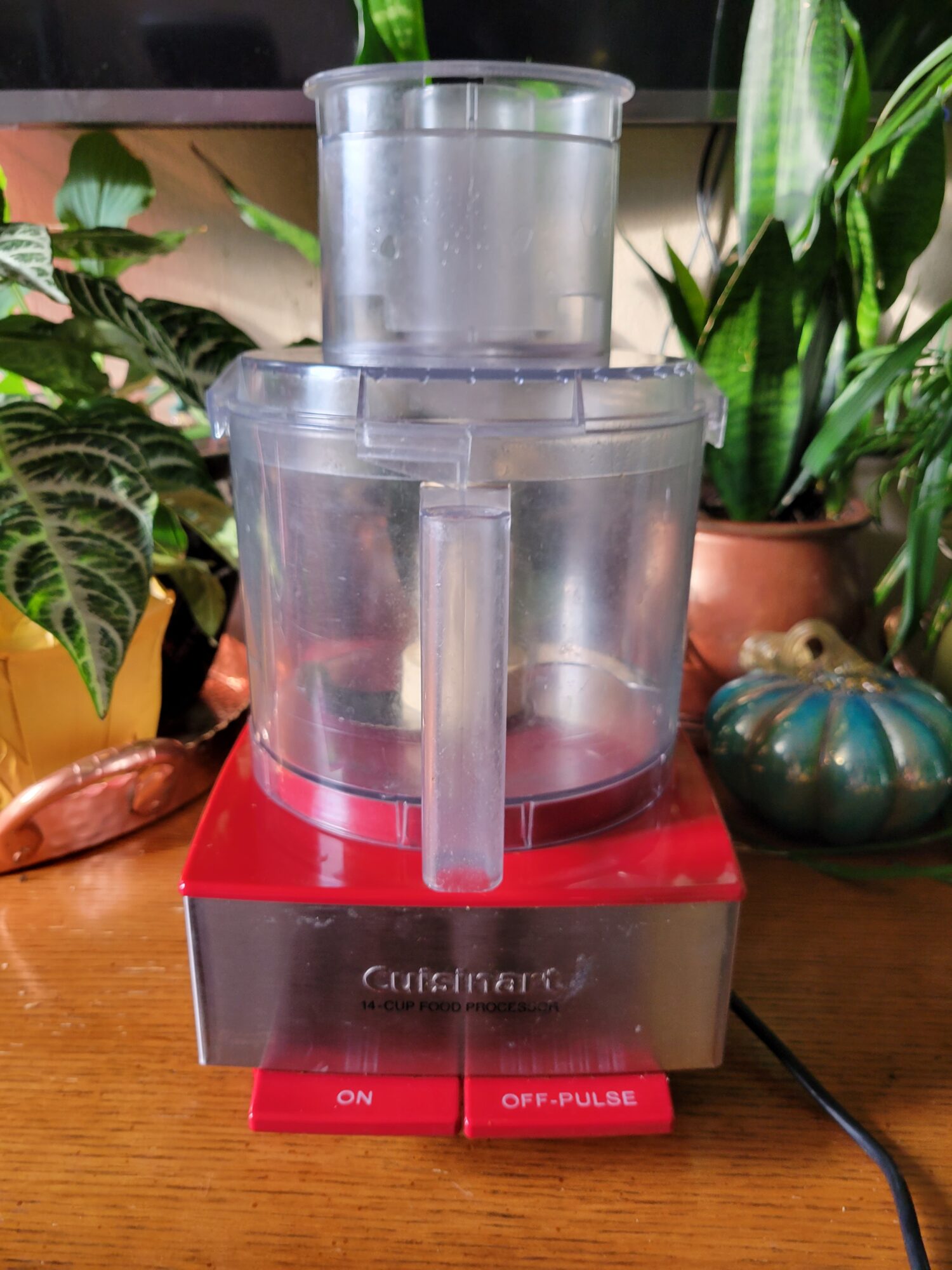
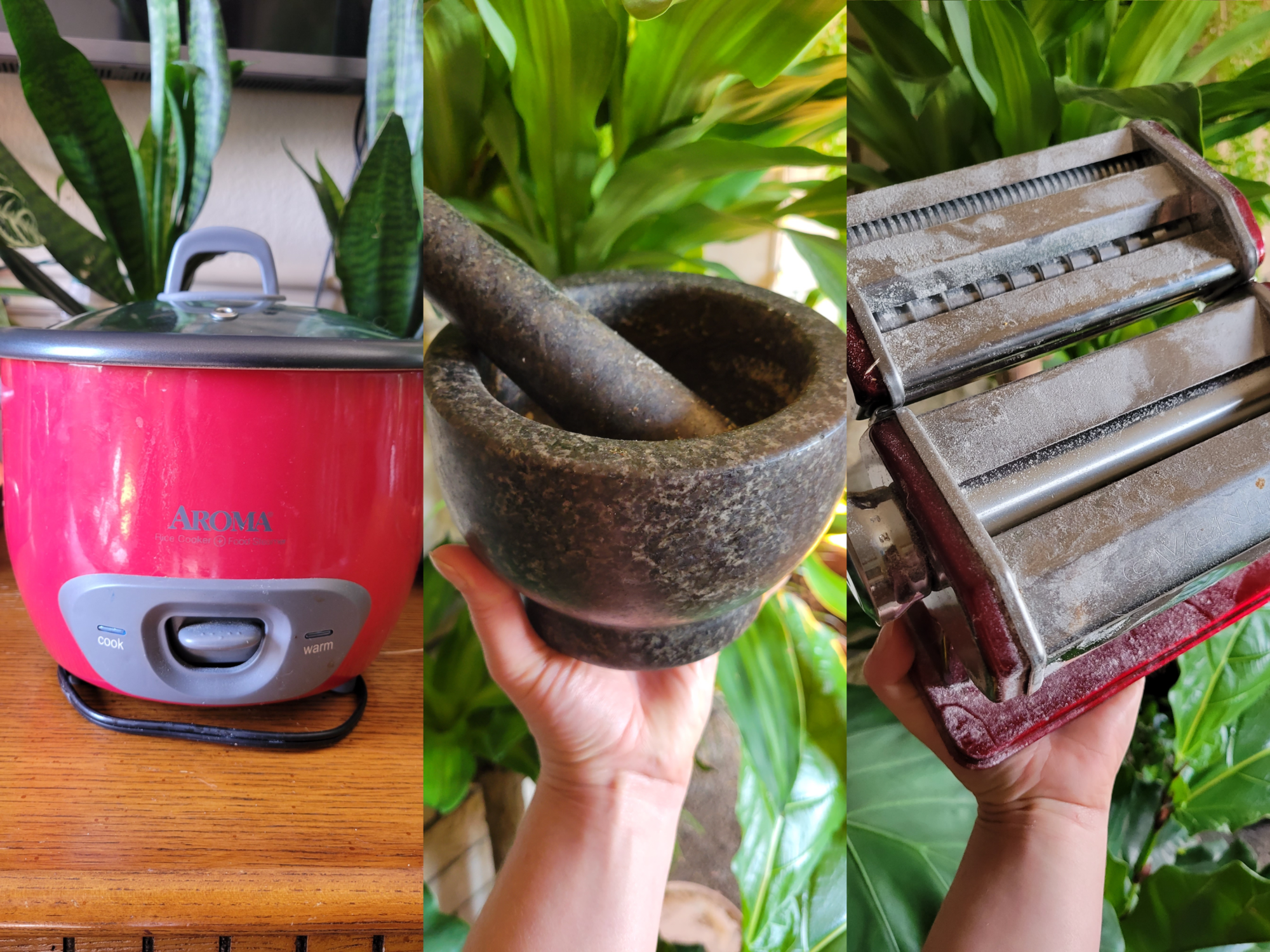


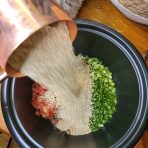

Leave a Reply